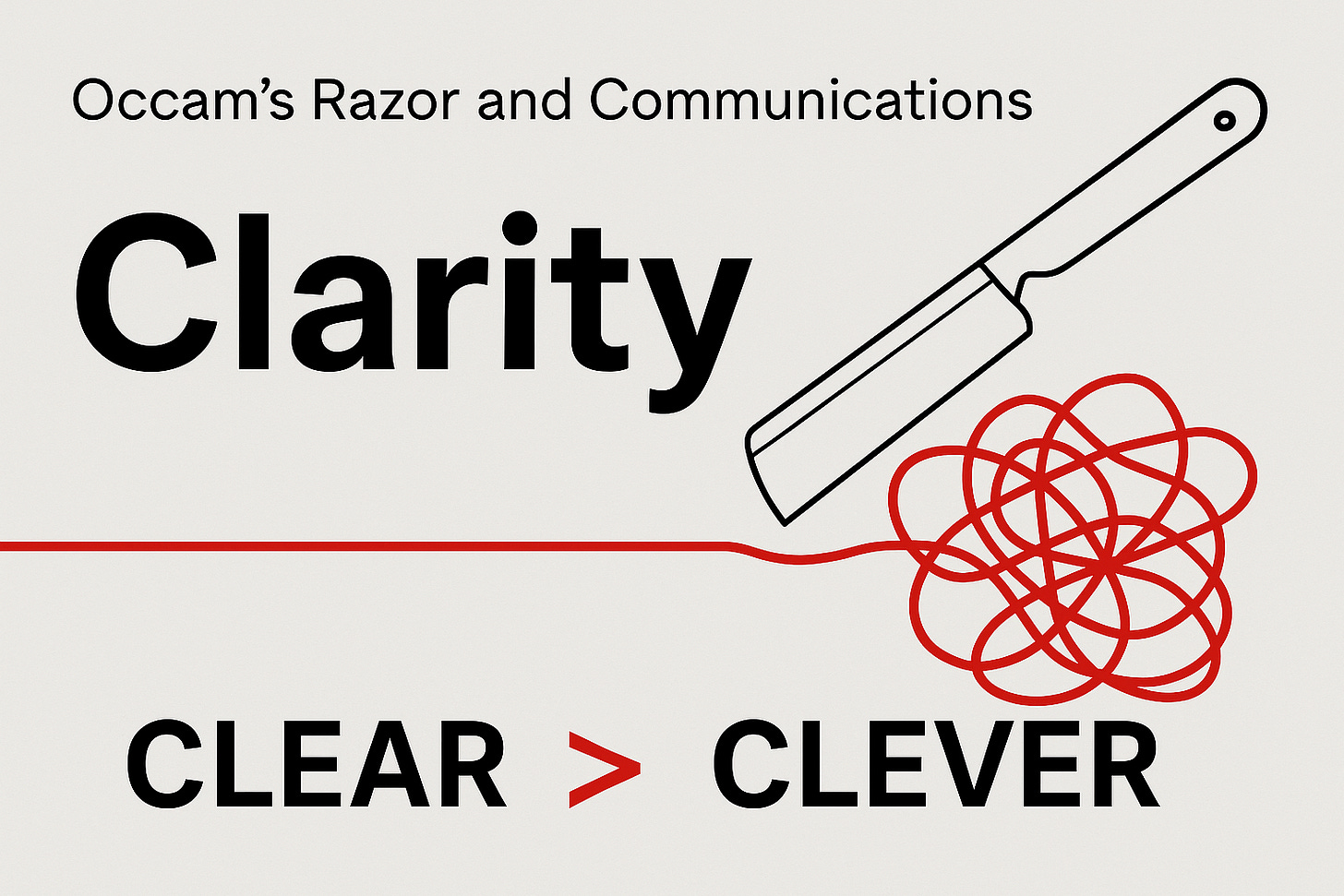William of Ockham, a 14th-century friar, is credited with the principle now known as Occam's Razor: the simplest explanation is usually the right one. If your horse bolts out of the barn, it's probably spooked by noise, not abducted by aliens.
Applied to communications, Occam's Razor means simple, clear language will usually work better than clever turns of phrase or jargon-laden complexity. Yet organizations, especially universities and corporations, seem allergic to simplicity.
Pick up almost any industry press release and you'll drown in a sea of "leveraging synergies" and "innovative solutions in today's shifting landscape." I've seen statements so tangled in their own bureaucratic phrasing that the actual message was impossible to find. Stakeholders don't want to decode hieroglyphics. They want to know: what happened, what's being done about it, and how it affects them.
Case in point: after the Boeing 737 MAX crashes, the company's communications leaned heavily on technical explanations and vague assurances. The New York Times pointed out that the statements were full of hedging language that obscured accountability. To the public, the messaging came across as evasive. Occam's Razor would have cut through all that: here's what went wrong, here's how we're fixing it, here's what it means for you.
The simplest explanation is usually the right one because it respects the audience's time and intelligence. Clever messaging may impress your internal team, but it rarely lands with the people you're trying to reach.
A good communicator is like a translator: taking complexity and delivering clarity. That's not dumbing things down. It's sharpening them up.
When you feel the urge to reach for the thesaurus, grab the Razor instead.


